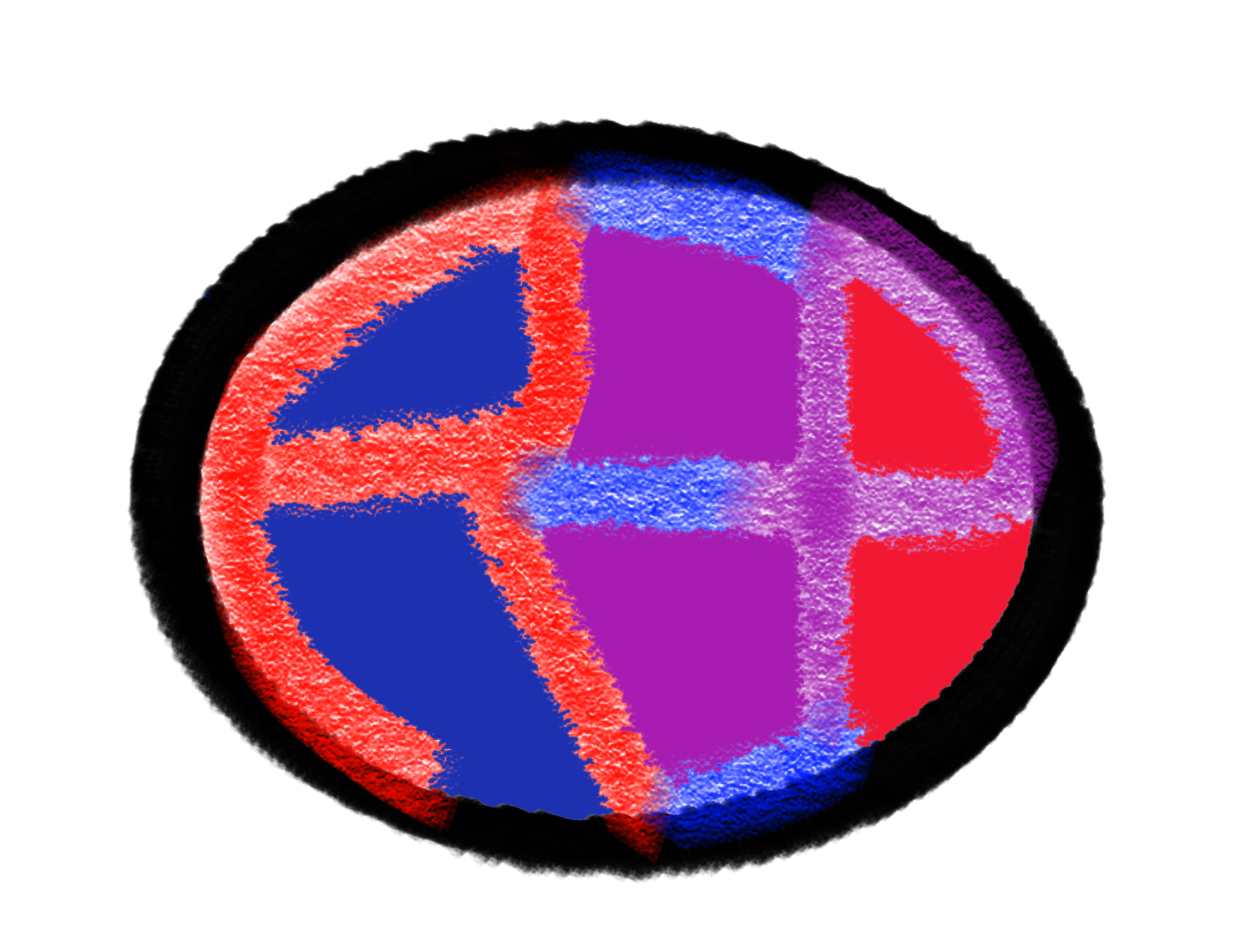Skip to content

English learners often confuse words relating to travel.
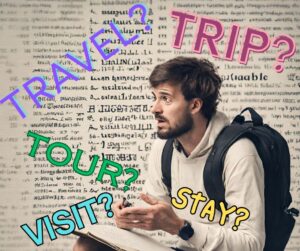
Please see the following notes on the matter.

The word “travel” is almost always used as a verb that means to go to a distant place.
It is followed by the preposition “to” before an object of destination but does not always require such an object.

The word “travel” is sometimes used as a noun, but the meaning is the same as the infinitive “to travel” or the gerund “traveling”.

Note: The verb “go” can be used with the gerund “traveling” but NOT with the infinitive “to travel“.
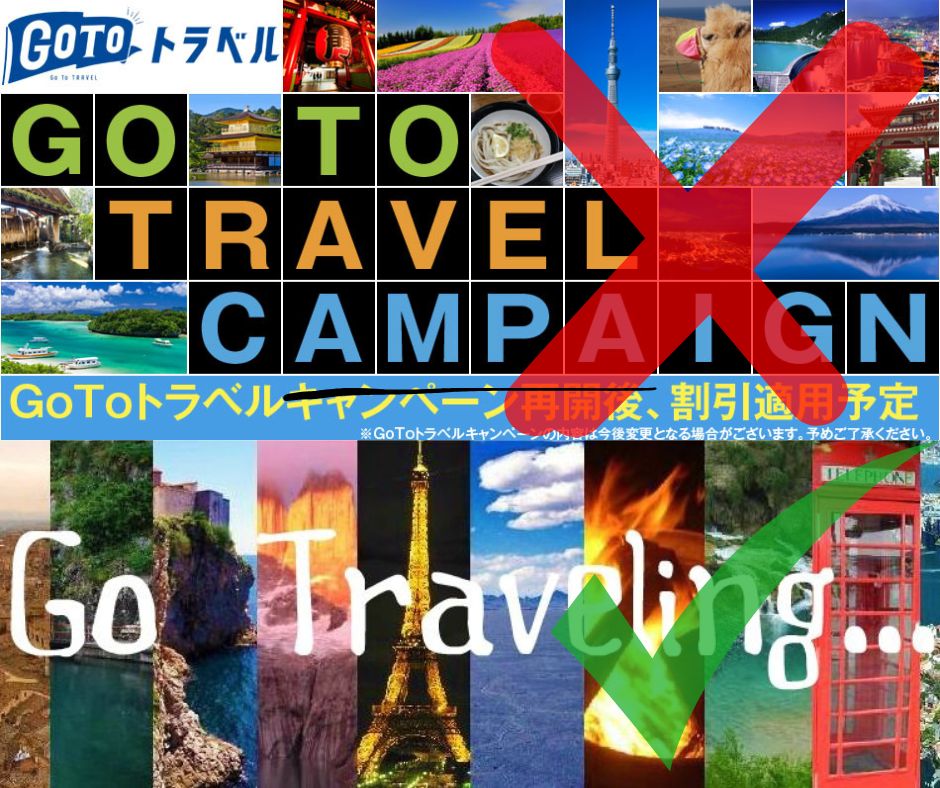

The word “trip” is almost always used as a noun that is the event of going to another place and returning.
As an object, it often pairs with the verbs “take” or “go on“.
It always has an article (“a” or “the“) or a possessive pronoun (“my“, “your“, “her“, “their“, etc.).
It is also followed by the preposition “to” before an object of destination but does not require such an object.
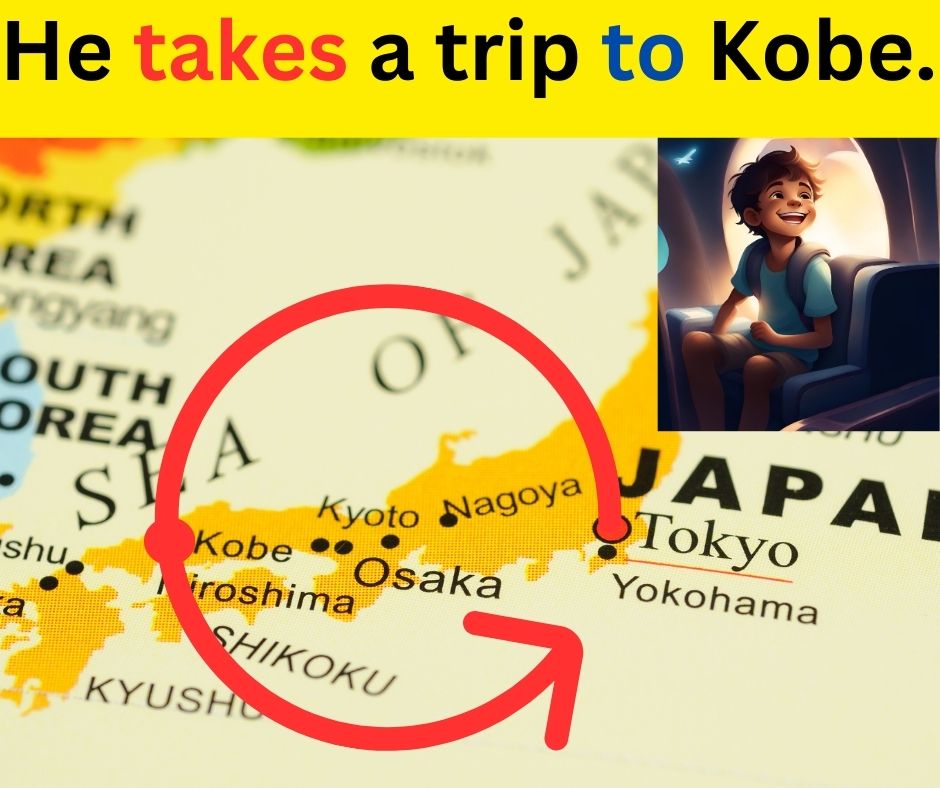
When used as a verb the word “trip” has a completely different and unrelated meaning, which is to lose one’s footing while walking.
It is often followed by the prepositions “on” or “over” in relation to the cause.
It has the same meaning when used in the infinitive (“to trip“) or as a gerund (“tripping”)
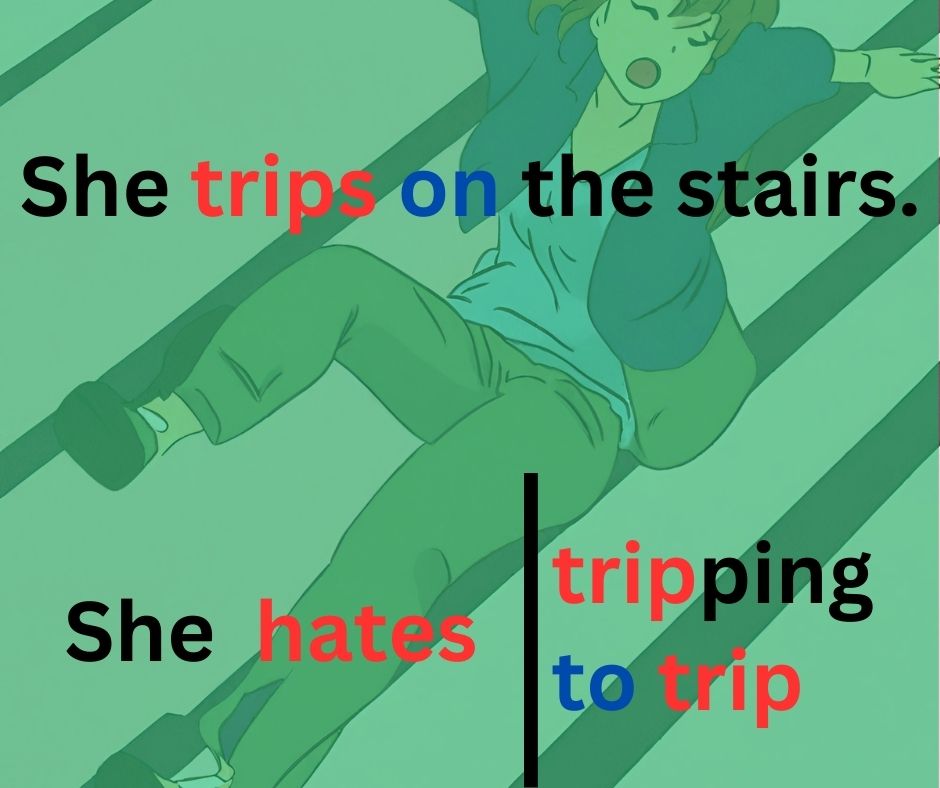

The word “tour” can be used as both a verb and a noun.
As a verb, it means to go to multiple locations for sightseeing.
It is NOT followed by the preposition “to” but MUST be followed by an object of destination.
As a noun, it means the very event of visiting multiple locations for sight-seeing.
It also pairs with the verbs “take” or “go on“.
It always has an article (“a” or “the“) or a possessive pronoun (“my“, “your“, “her“, “their“, etc.).
It is followed by the preposition “of” before an object of destination but does not require such an object.
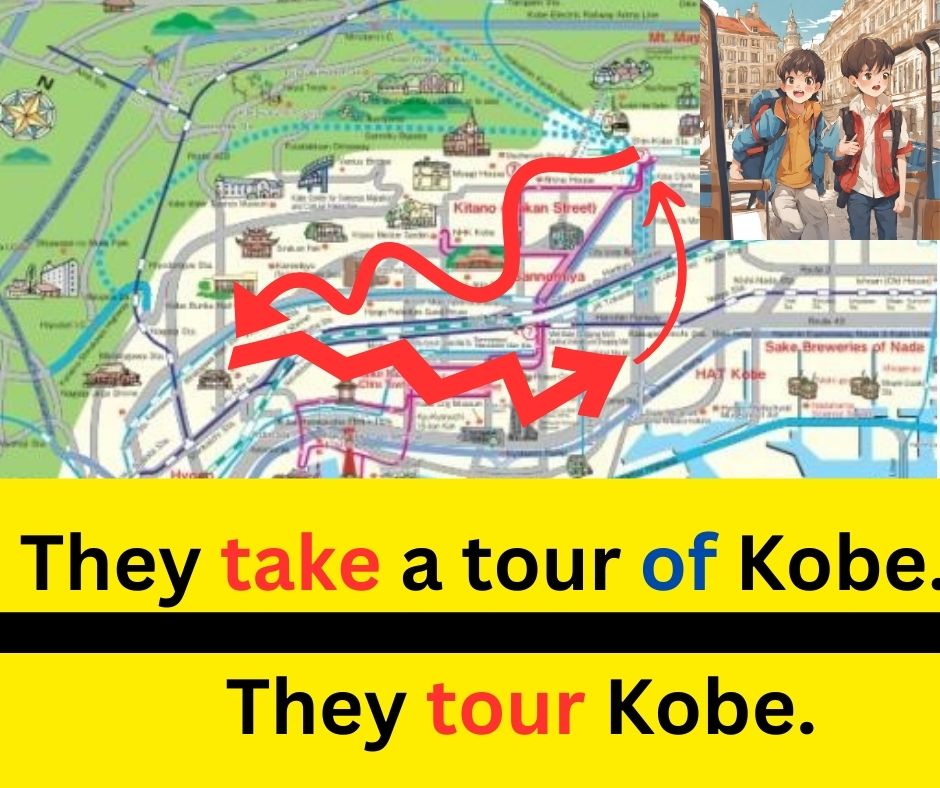
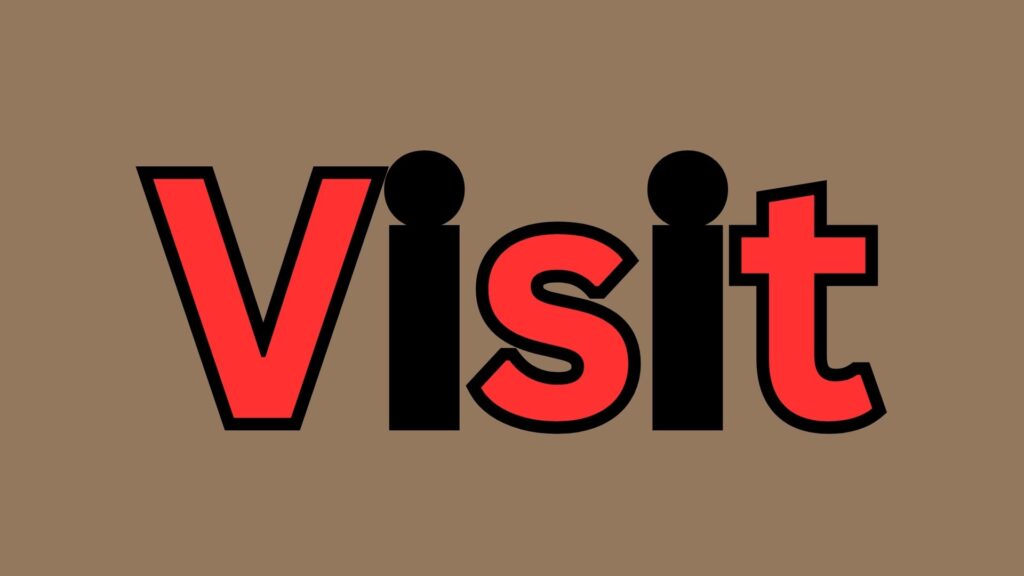
The word “visit” can be used as both a verb and a noun.
As a verb, it means to be at a location for a short time.
It is NOT followed by the preposition “to” but MUST be
followed by an object of destination.
As a noun, it means the very event of going to a location for a short time.
It often pairs with the verbs “make“, “go for” or pay (someone/place).
It always has an article (“a” or “the“) or a possessive pronoun (“my“, “your“, “her“, “their“, etc.).
It is followed by prepositions like “with” or “to” before an object of person or destination but does not require such an object.
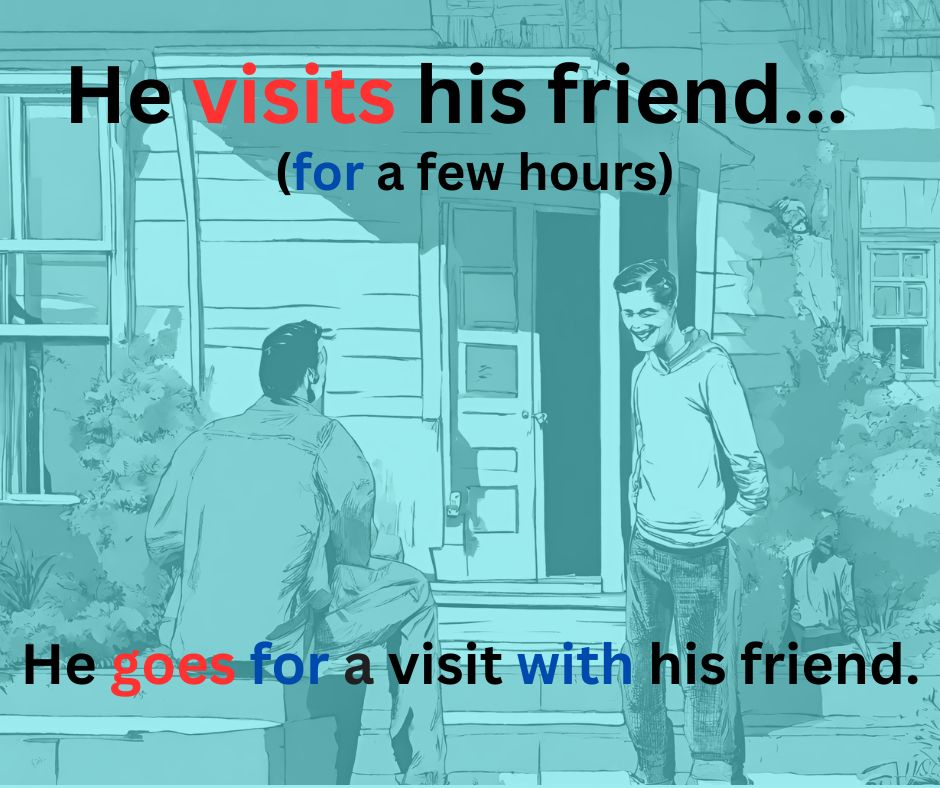

The word “stay” can be used as both a verb and a noun.
As a verb, it means to be at a location for a long time (at least overnight).
It is usually followed by prepositions like “at“, “in” and “with” but MUST be
followed by an object or person of destination.
As a noun, it means the very event of being at a location for a long time.
It often pairs with the verbs “have” or “do“.
It always has an article (“a” or “the“) or a possessive pronoun (“my“, “your“, “her“, “their“, etc.).
It is followed by prepositions like “at“, “in” and “with” before an object of person or destination but does not require such an object.
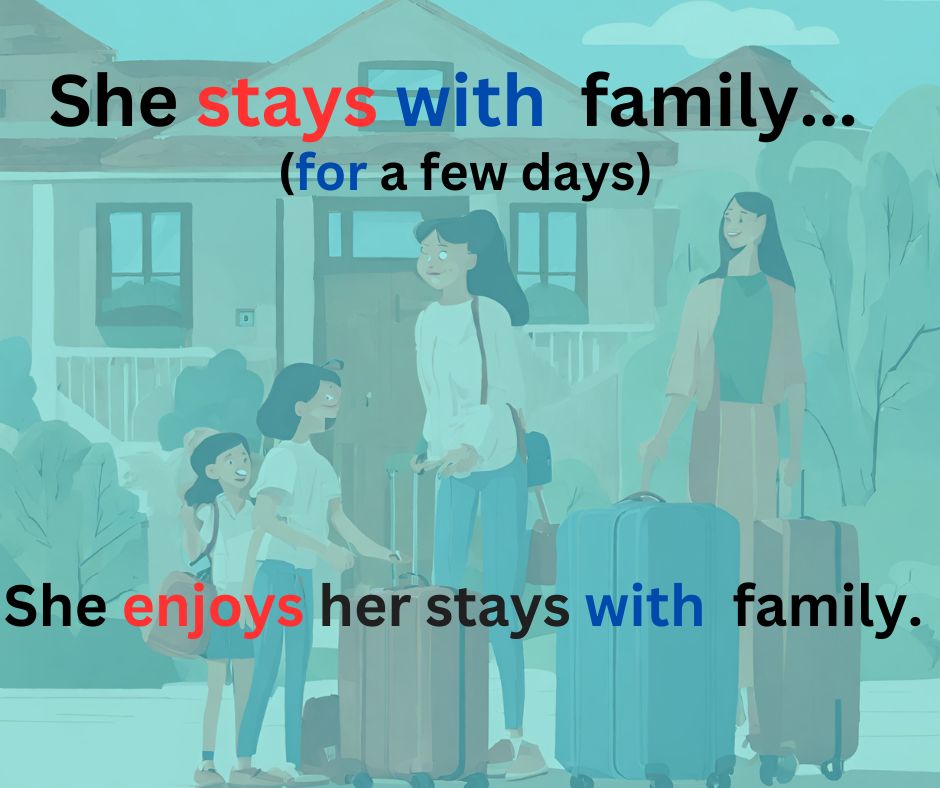
Now read the following travel diary. Which of the above words or phrases would you use to fill in the numbered blanks?
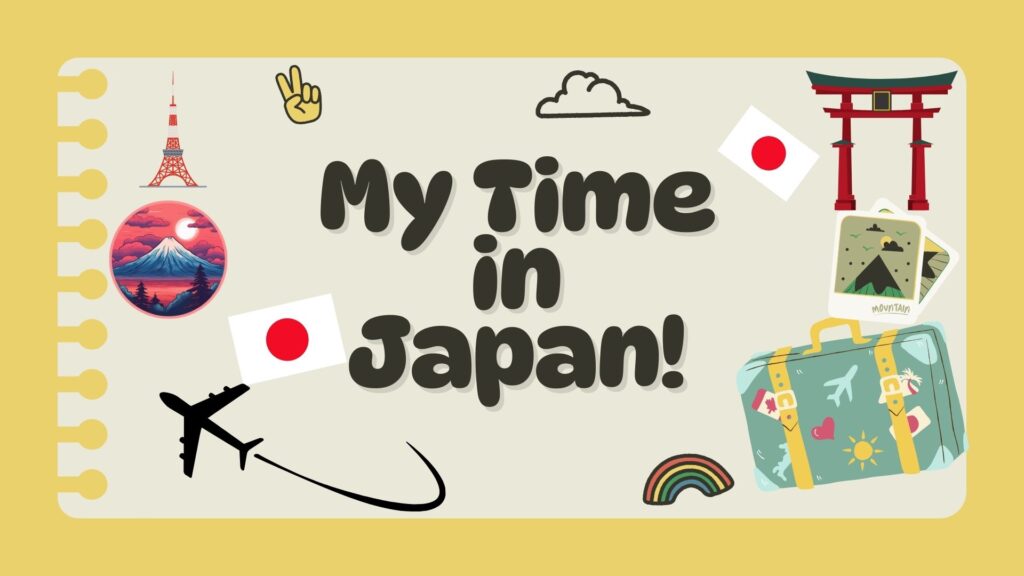
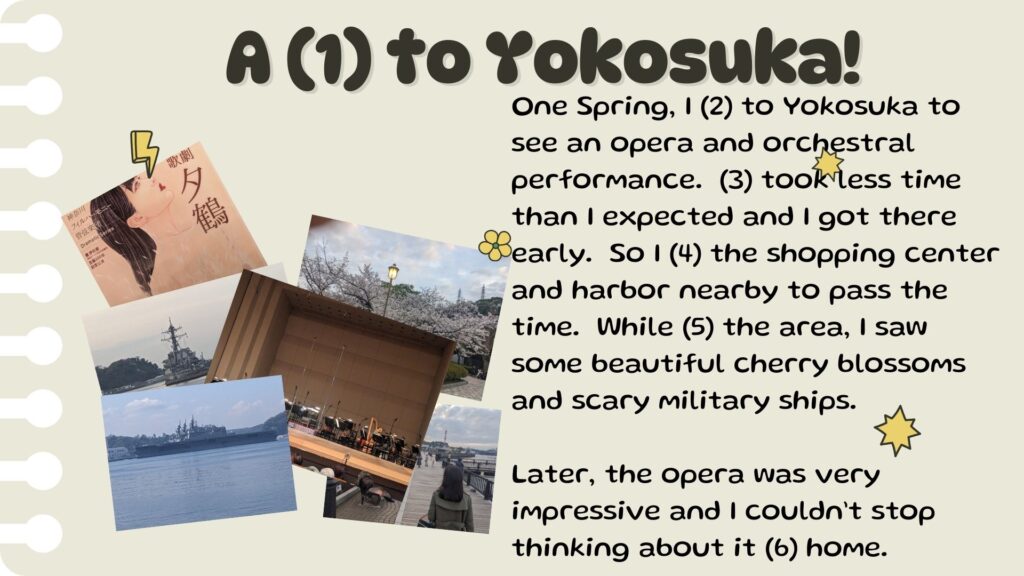
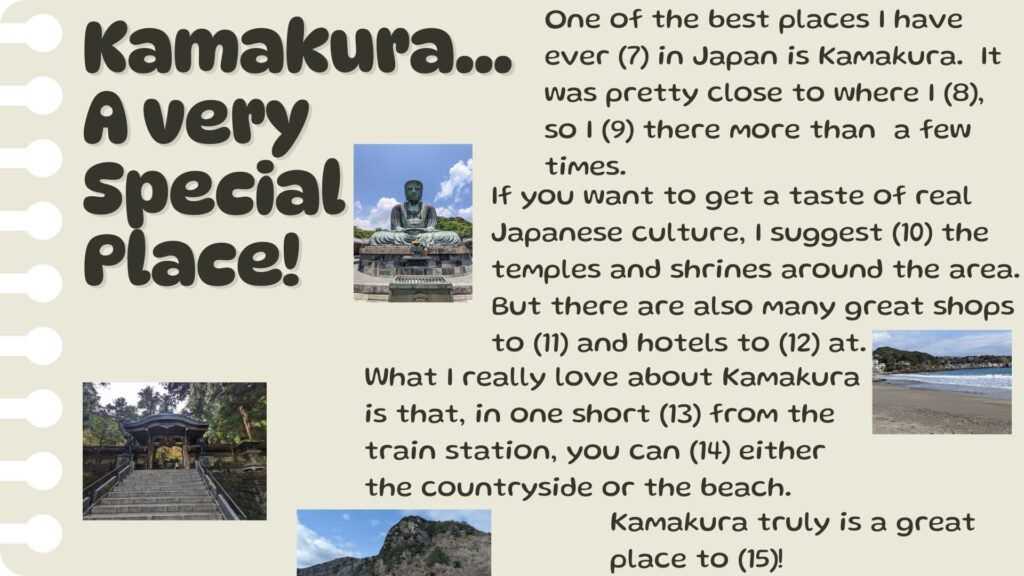
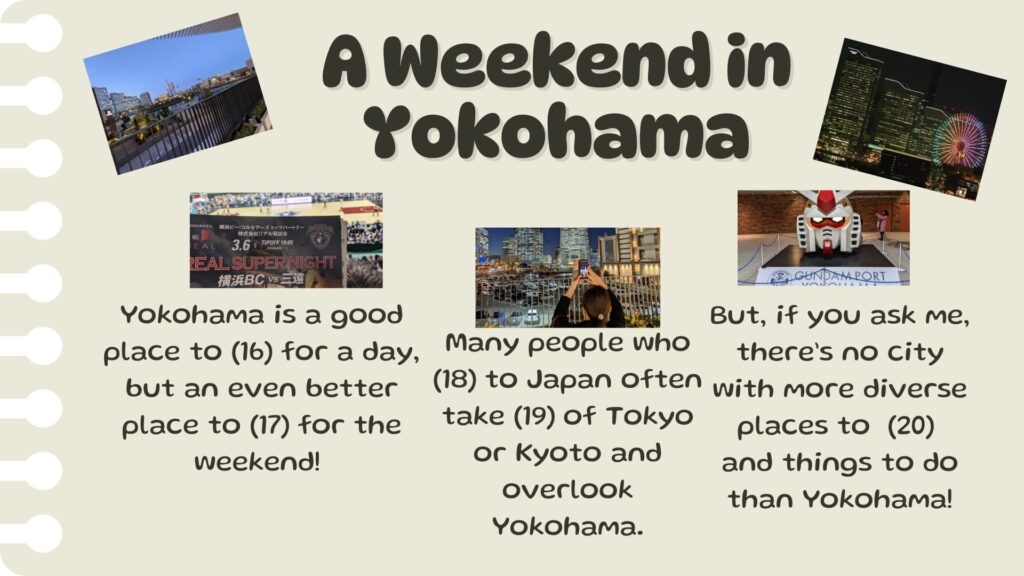
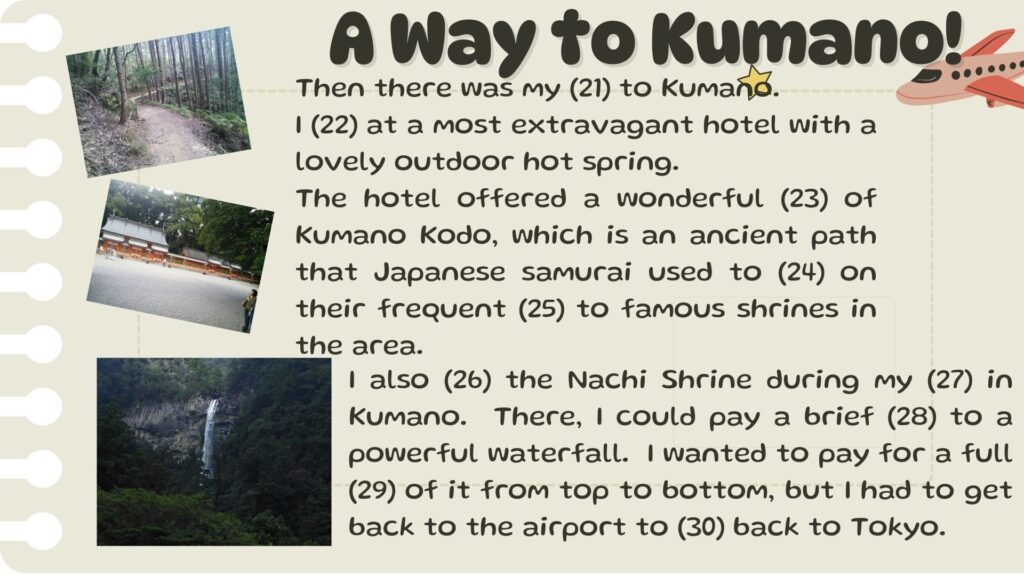
Great!!!
Now take the following quiz to receive some possible answers:
Thanks for Playing!
And stay tuned for the next challenge!
Click here
for private English coaching based on this blog post.



















